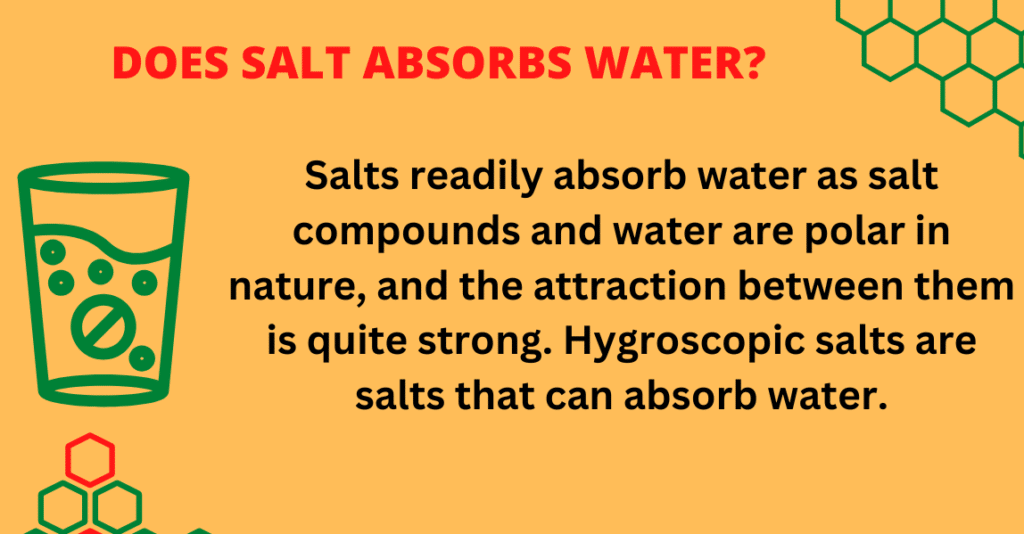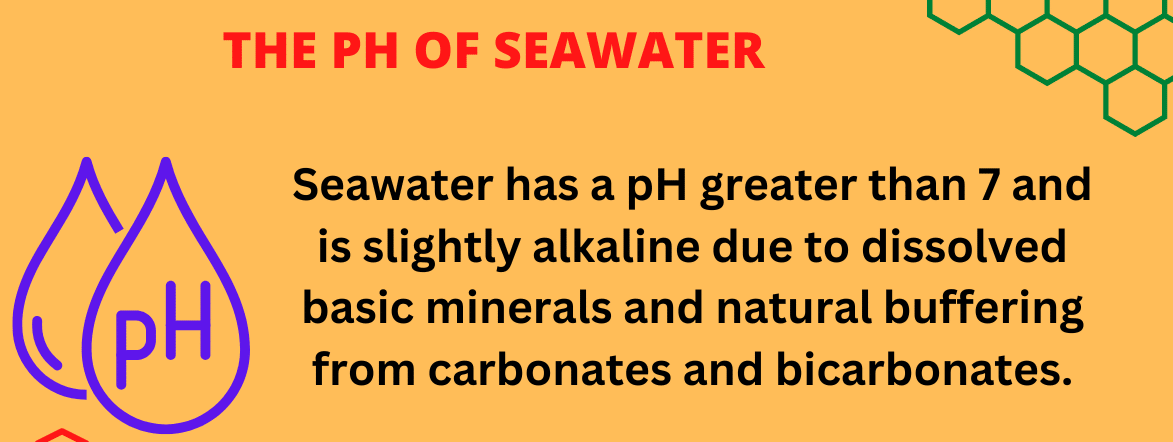Salts readily absorb water as salt compounds and water are polar in nature, and the attraction between them is quite strong. Hygroscopic salts are salts that can absorb water. Above 75% relative humidity, salt becomes deliquescent, meaning it absorbs so much water that it forms a solution.
Sugar is also hygroscopic; it forms weak bonds with the water molecules in its surroundings.

Table of Contents
Why Does Salt Absorb Water?
Salt is an ionic compound that attracts highly polar water molecules with strong attractive forces. Because of this property, it is hygroscopic, meaning it absorbs both liquid water and water vapours in the air. When salt is dissolved in water, a similar process occurs, except that the salt predominates and the interacting particles remain solid.
Moreover, the bonds in salt compounds are referred to as ionic. In sodium chloride, for example, the chloride ion is negatively charged and the sodium ion is positively charged. Similarly, a water molecule is ionic in nature, but the bond is called covalent because two hydrogen atoms are positioned with their positive charges on one side of an oxygen atom with a negative charge. When salt is mixed with water, it dissolves because water’s covalent bonds are stronger than the ionic bonds in salt molecules.
The amount of a substance that can dissolve in a liquid (at a specific temperature) is referred to as its solubility.
The substance being dissolved is known as the solute, and the substance dissolving is known as the solvent.
In sodium chloride solution in water, sodium chloride is solute and water is solvent.
Salinity
Salinity, in general, refers to the amount of mineral salts dissolved in water. In other words, salinity is the accumulation of salt in land and water to such an extent that it harms both the natural and built environments. Salt in the soil can accumulate from a variety of sources, including rain, weathering, Connate salt, and Aeolian deposits.
Summary
The answer to the question, “Does Salt Absorb Water?” is yes.
Salt has a strong ability to absorb water from its surroundings due to the polar nature of salt and water. Above a relative humidity of about 75%, salt becomes deliquescent, which means it absorbs so much water that it dissolves.
More Links
Frequently Asked Question
1. Can salt pull moisture out of the air?
2. Does common salt absorb moisture?
3. Does rice in the salt shaker really absorb moisture?
- BCl3 Lewis Structure in four simple steps - November 1, 2023
- PH3 Lewis Structure in four simple steps - October 8, 2023
- PF3 Lewis structure in four simple steps - September 24, 2023



